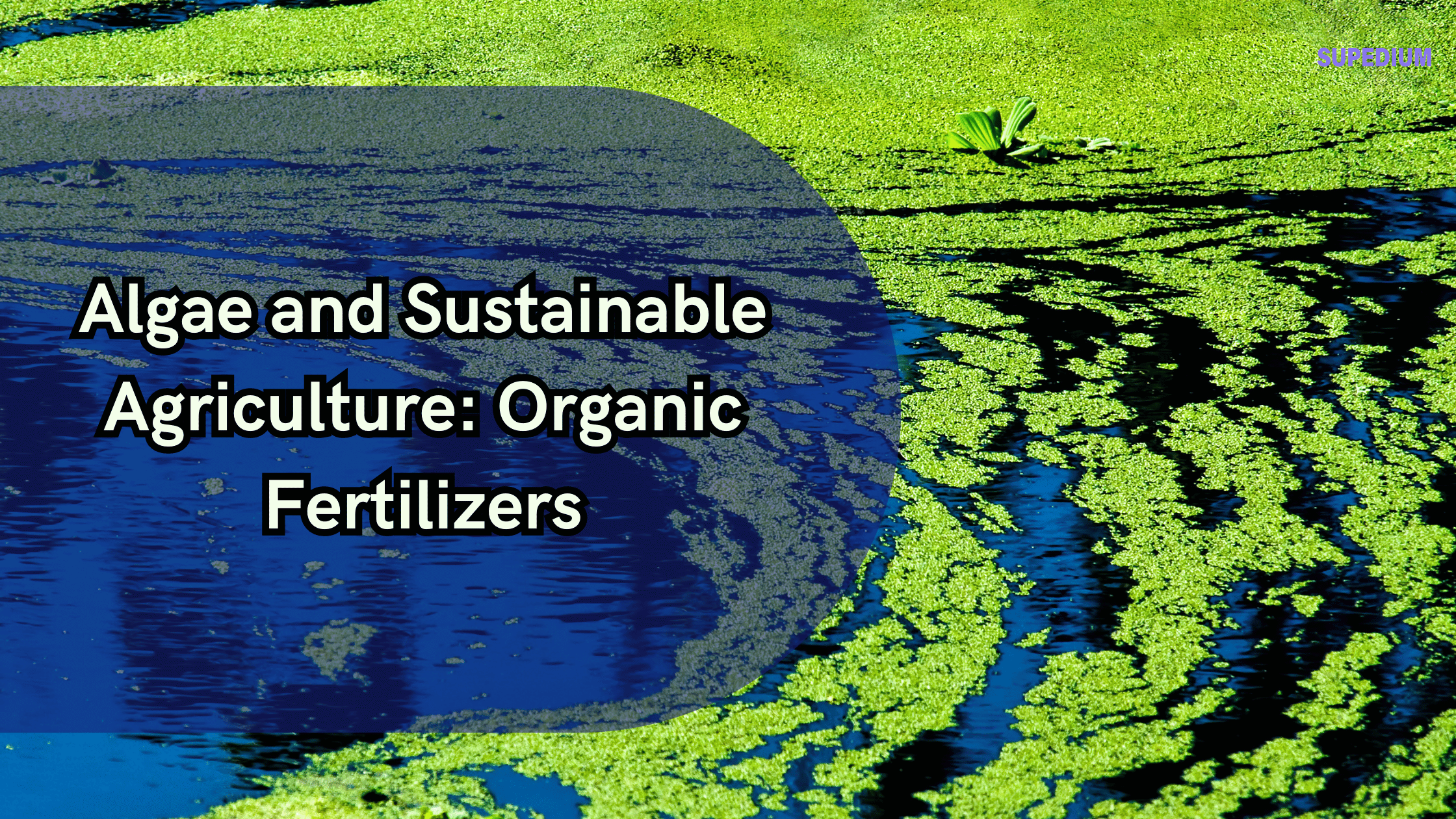Table of Contents
![]()
Sustainable agriculture is a farming approach aimed at meeting current food and textile needs without compromising the ability of future generations to meet their own needs. It emphasizes environmental preservation, economic viability, and social equity. One critical aspect of sustainable agriculture is the use of organic fertilizers, which are vital for maintaining soil health and reducing the reliance on synthetic chemicals. Algae, with their rich nutrient profiles and environmental benefits, have emerged as a promising component of organic fertilizers.
Types of Algae Used in Organic Fertilizers
Organic fertilizers derived from algae come in two main types: macroalgae and microalgae. Each type offers distinct advantages due to its unique nutritional profile.
Macroalgae, such as seaweeds, are often used in organic fertilizers. Examples include kelp (e.g., Ascophyllum nodosum), which is rich in essential minerals like iodine and potassium. These minerals not only contribute to soil fertility but also enhance the nutrient content of crops. Kelp and other seaweeds are also valued for their high organic matter content, which improves soil structure and water retention.
Microalgae such as spirulina and chlorella are also utilized in organic fertilizers. These microalgae are renowned for their high protein content, vitamins, and lipids. Spirulina, for instance, is a complete protein source, making it beneficial for plant growth and soil health. Chlorella, with its high chlorophyll content, supports soil microbial activity and overall plant health.
Benefits of Algae-Based Organic Fertilizers
Algae-based organic fertilizers offer several advantages that contribute to sustainable agriculture:
Nutrient Enrichment: Algae fertilizers provide a rich array of macro and micronutrients essential for plant growth. These include nitrogen, phosphorus, potassium, and trace elements like iron and magnesium. The nutrients from algae are often more readily available to plants compared to those in traditional organic fertilizers.
Soil Health Improvement: Algae fertilizers help enhance soil structure by adding organic matter, which improves soil aeration and water-holding capacity. They also promote microbial activity in the soil. Beneficial microorganisms, stimulated by the organic matter from algae, contribute to nutrient cycling and disease suppression.
Environmental Benefits: The use of algae-based fertilizers can significantly reduce chemical runoff, a major environmental issue associated with synthetic fertilizers. Algae also contribute to carbon sequestration, helping to mitigate climate change by capturing atmospheric carbon dioxide and storing it in the soil.
Increased Crop Yields and Quality: Research has shown that algae-based fertilizers can lead to increased crop yields and improved quality. For example, studies have demonstrated enhanced growth rates and better disease resistance in crops treated with algae-based products compared to those treated with traditional organic fertilizers.
Methods of Incorporating Algae into Fertilizers
The incorporation of algae into fertilizers involves several processing and application methods:
Processing Techniques: Algae can be processed in various forms for use as fertilizers. Drying and powdering are common methods, making it easy to blend algae with other organic inputs. Liquid extracts and solutions are also popular, allowing for easy application via irrigation systems or as foliar sprays.
Application Methods: Algae-based fertilizers can be applied directly to the soil or used as foliar sprays. Soil incorporation improves nutrient availability and enhances soil structure, while foliar sprays provide a quick nutrient boost to plants. Both methods can be effective depending on the specific needs of the crop and soil.
Integration with Other Organic Inputs: Algae-based fertilizers can be combined with compost and green manures to create a more comprehensive soil fertility program. This integration can maximize nutrient availability and support a diverse soil ecosystem.
Case Studies and Practical Applications
Several case studies highlight the successful application of algae-based organic fertilizers:
Successful Applications: Research and practical applications have shown positive results with various crops. For instance, kelp-based fertilizers have been used effectively in growing vegetables like tomatoes and lettuce, resulting in higher yields and improved plant health. Spirulina and chlorella have also been applied to crops such as grains and legumes, showing enhanced growth and resistance to pests.
Lessons Learned: Best practices for using algae-based fertilizers include selecting the right type of algae for specific crops and soil conditions. Challenges such as the cost of production and availability of raw materials need to be addressed to optimize the benefits of algae-based fertilizers. Farmers and researchers should focus on trialing different algae formulations and application methods to determine the most effective strategies.
Economic and Practical Considerations
The use of algae-based fertilizers comes with several economic and practical considerations:
Cost Analysis: The production of algae-based fertilizers can be more expensive compared to conventional organic fertilizers. Factors such as algae cultivation, processing, and transportation contribute to the cost. However, the benefits in terms of soil health and crop yields can offset these expenses over time.
Scalability and Accessibility: While algae-based fertilizers can be used in both large-scale and small-scale operations, the availability of raw materials and the scalability of production processes are important factors. Ensuring a steady supply of algae and developing cost-effective production methods are crucial for widespread adoption.
Regulatory and Certification Issues: Organic certification standards require that fertilizers meet specific criteria. Algae-based fertilizers must comply with these regulations to be marketed as organic. Farmers and producers need to stay informed about certification requirements and ensure that their products meet the necessary standards.
Future Trends and Research Directions
The future of algae-based organic fertilizers is promising, with several emerging trends and research directions:
Innovations in Algae Cultivation: Advances in algal biotechnology, including genetic modifications and improved cultivation techniques, hold potential for developing new algae strains with enhanced nutrient profiles. These innovations could lead to more efficient and effective fertilizers.
Emerging Applications: Algae-based fertilizers may find new applications in urban and vertical farming, where space is limited and sustainable practices are crucial. The integration of algae with other sustainable agricultural practices, such as precision farming and regenerative agriculture, could further enhance their benefits.
Research Needs: Long-term impact studies are needed to fully understand the effects of algae-based fertilizers on soil health and crop productivity. Research should focus on optimizing algae formulations and application methods to maximize their potential.
Conclusion
Algae-based organic fertilizers offer a promising solution for sustainable agriculture, providing numerous benefits for soil health, crop productivity, and environmental conservation. By leveraging the nutrient-rich profiles of both macroalgae and microalgae, farmers can enhance their agricultural practices while reducing reliance on synthetic inputs. Continued research, innovation, and practical application will be key to realizing the full potential of algae in sustainable farming.
As we look to the future, it is clear that algae have a significant role to play in the development of more sustainable and resilient agricultural systems. Researchers, farmers, and policymakers should continue to explore and support the use of algae-based fertilizers as part of a broader strategy for achieving sustainable agriculture.
Share This





Be the first to comment